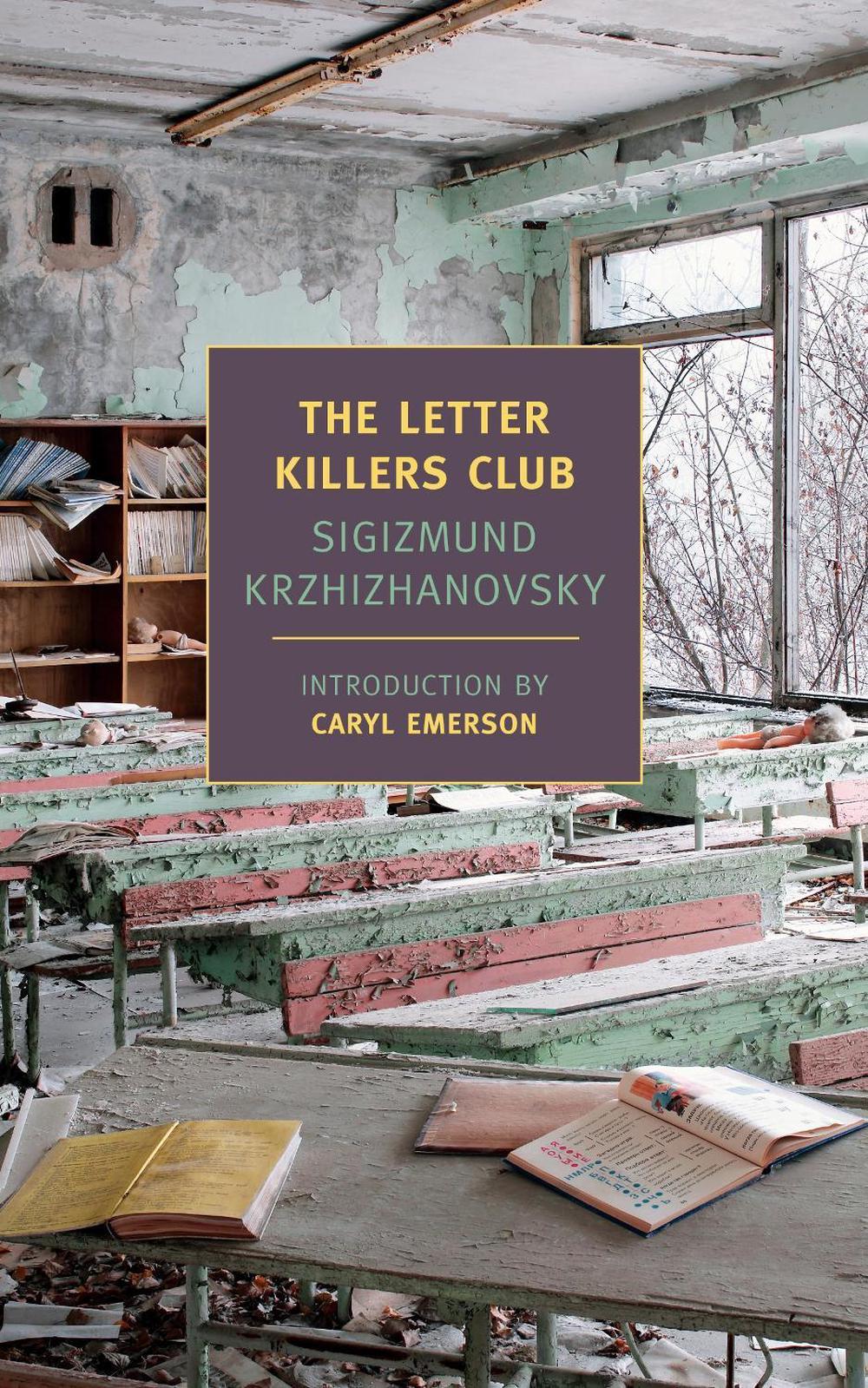
The Letter Killers Club
- Paperback
144 pages
- Release Date
14 January 2012
Summary
The Letter Killers Club: Where Ideas are Deadly
The Letter Killers Club is a secret society of self-described “conceivers” who, to preserve the purity of their conceptions, will commit nothing to paper. (What, after all, is your run-of-the-mill scribbler of stories if not an accomplished corruptor of conceptions?) The logic of the club is strict and uncompromising.
Every Saturday, members meet in a firelit room filled with empty black bookshelves where they strive to top one…
Book Details
| ISBN-13: | 9781590174500 |
|---|---|
| ISBN-10: | 159017450X |
| Series: | New York Review Books Classics |
| Author: | Sigizmund Krzhizhanovsky |
| Publisher: | New York Review Books |
| Imprint: | NYRB Classics |
| Format: | Paperback |
| Number of Pages: | 144 |
| Edition: | Main |
| Release Date: | 14 January 2012 |
| Weight: | 169g |
| Dimensions: | 202mm x 126mm x 10mm |
You Can Find This Book In
What They're Saying
Critics Review
A quirky, exploratory novella. Glasgow Herald Joanne Turnbull and Nikolai Formozov have impressively captured the philosophical, pithy, occastionally folksy and profoundly poetic character of Krzhizhanovsky’s prose Times Literary Supplement
About The Author
Sigizmund Krzhizhanovsky
Sigizmund Krzhizhanovsky (1887-1950), the Ukrainian-born son of Polish emigrants, studied law and classical philology at Kiev University. After graduation and two summers spent exploring Europe, he was obliged to clerk for an attorney. A sinecure, the job allowed him to devote most of his time to literature and his own writing. In 1920, he began lecturing in Kiev on theater and music. The lectures continued in Moscow, where he moved in 1922, by then well known in literary circles. Lodged in a cell-like room on the Arbat, Krzhizhanovsky wrote steadily for close to two decades. His philosophical and phantasmagorical fictions ignored injunctions to portray the Soviet state in a positive light. Three separate efforts to print collections were quashed by the censors, a fourth by World War II . Not until 1989 could his work begin to be published. Like Poe, Krzhizhanovsky takes us to the edge of the abyss and forces us to look into it. “I am interested,” he said, “not in the arithmetic, but in the algebra of life.”
Joanne Turnbull’s translations from Russian in collaboration with Nikolai Formozov include Sigizmund Krzhizhanovsky’s Memories of the Future, short-listed for the Best Translated Book Award.
Caryl Emerson is the A. Watson Armour III University Professor of Slavic Languages and Literatures at Princeton University.
Returns
This item is eligible for free returns within 30 days of delivery. See our returns policy for further details.




